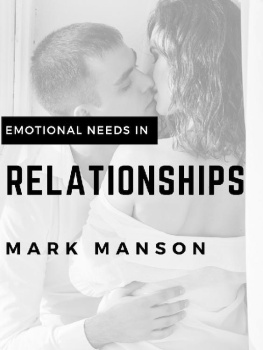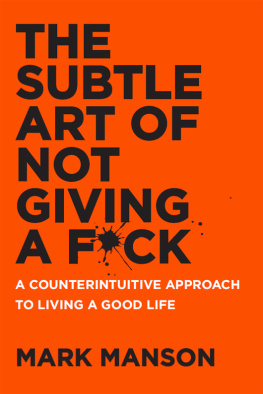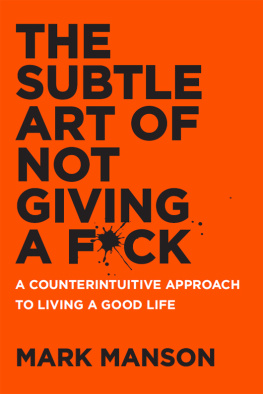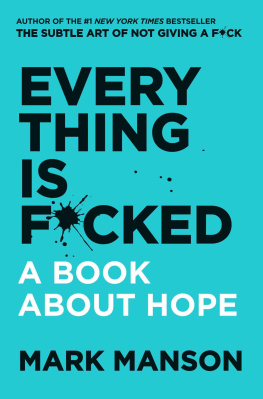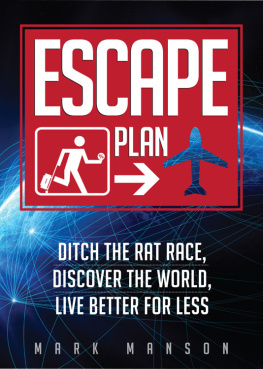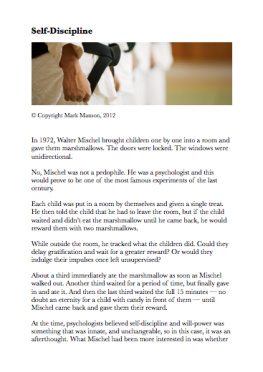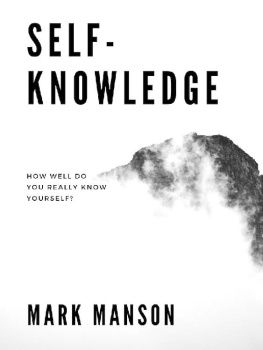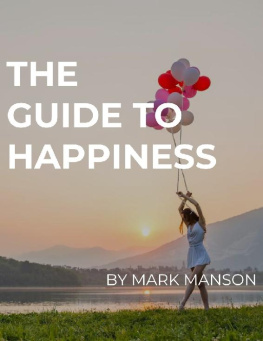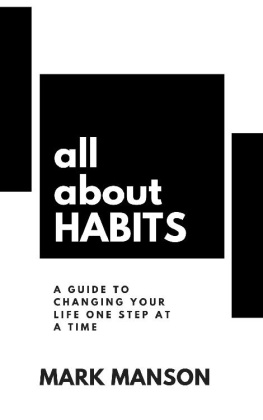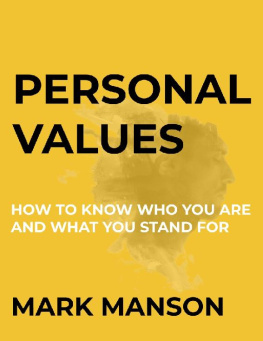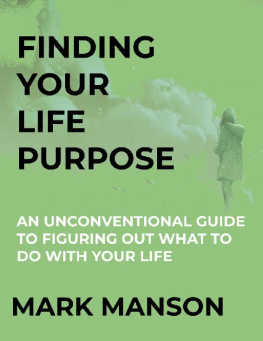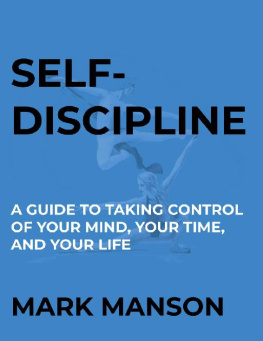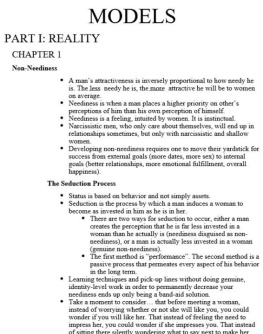Mark Manson - Emotional Needs in Relationships
Here you can read online Mark Manson - Emotional Needs in Relationships full text of the book (entire story) in english for free. Download pdf and epub, get meaning, cover and reviews about this ebook. year: 2018, genre: Home and family. Description of the work, (preface) as well as reviews are available. Best literature library LitArk.com created for fans of good reading and offers a wide selection of genres:
Romance novel
Science fiction
Adventure
Detective
Science
History
Home and family
Prose
Art
Politics
Computer
Non-fiction
Religion
Business
Children
Humor
Choose a favorite category and find really read worthwhile books. Enjoy immersion in the world of imagination, feel the emotions of the characters or learn something new for yourself, make an fascinating discovery.
- Book:Emotional Needs in Relationships
- Author:
- Genre:
- Year:2018
- Rating:4 / 5
- Favourites:Add to favourites
- Your mark:
- 80
- 1
- 2
- 3
- 4
- 5
Emotional Needs in Relationships: summary, description and annotation
We offer to read an annotation, description, summary or preface (depends on what the author of the book "Emotional Needs in Relationships" wrote himself). If you haven't found the necessary information about the book — write in the comments, we will try to find it.
Emotional Needs in Relationships — read online for free the complete book (whole text) full work
Below is the text of the book, divided by pages. System saving the place of the last page read, allows you to conveniently read the book "Emotional Needs in Relationships" online for free, without having to search again every time where you left off. Put a bookmark, and you can go to the page where you finished reading at any time.
Font size:
Interval:
Bookmark:
MARKMANSON.NET
2018
Mark Manson
I n sex, dating and relationships, words and actions are only as useful as the emotions they elicit. They dont have any intrinsic value by themselves.
When we interact with someone were attracted to and it doesnt go as wed hoped, we often come away thinking that if only we would have said or done something differently, things could have turned out much better. When we get dumped, we obsessively search our memories for the moments, or even the moment, where it all went wrong, and then we kick ourselves for the things we did or didnt do in those moments that could have saved it all.
But its precisely this insecurity about what to do that backfires on us. By focusing too much on what we should say or how we should act around someone whether its someone we just met or someone weve been with for years we fail to acknowledge the emotional realities that define the quality of the relationship between us.
Our relationships, then, should be viewed in terms of emotional needs rather than actions because emotional needs are the fundamental factors that determine what actually happens in each interaction. The words, actions, and behaviors can shift and change and collide, but like tectonic plates floating on a hot surface beneath, its the emotional needs that create the results. If you feel unsure or unsafe, it will bleed through your words and actions and inhibit you from proceeding any further. If you feel lame and used, youll find a way to flake out, no matter what someone says or does.
If you can identify the emotional realities underlying your interactions and relationships, then youll truly understand where youre at with someone , as w ell as why you feel the way you do towards them.

On the surface, this sounds fairly straightforward. But the problem is that emotional processes are quite enigmatic. Its easy to obsess over what you might say to someone or to endlessly ponder the reasons why they might have done what they did when they did it but you cant see or touch the emotions that are driving the interaction and, ultimately, your relationship with them. Its a subjective interpretation of a situation, and so pointing to specific examples can be difficult, especially to those who are woefully unaware of the needs of others (as well as their own). Telling them to look for something that they dont even know is there can be like asking Stevie Wonder to read you a lunch menu.
The idea that humans are motivated primarily by emotions and use conscious decisions to justify their unconscious decisions is a cornerstone of psychological thought going all the way back to Freud.
So in our interactions with each other, we experience an immediate gut reaction and then form a conscious opinion of the other person. Our subsequent behavior towards them, or even how we might change our opinion of them, is all based on this initial emotional reaction. Our frontal cortex may paint a colorful picture of the person and the situation, but the amygdalas initial reaction is what chooses the color palette to begin with.
For instance, someone you just met who isnt all that into you will likely come up with a benign or irrelevant reason for why theyre rejecting you, which is their way of rationalizing their initial feelings towards you. So does this make them shallow and cold-hearted?
Not necessarily. Our emotional reactions to each other are a combination of so many factors, both conscious and unconscious, that well never be able to pinpoint them all with certainty. And not only that, but what causes one person to have a positive reaction to you might make another feel completely different (or even indifferent).
So instead of looking at what words or even what actions work the best in your relationships, we should pay attention to what emotions we want to elicit for the best results and strongest connections. Whats important is zeroing in on the emotional motivation behind anothers judgments and perceptions, not the actual judgments or perceptions themselves.
This may sound difficult or complicated, but its actually quite straightforward . Theres little logic to learn. Its merely an exercise of practicing empathy and intuiting what others are feeling rather than thinking and analyzing their surface reactions. Its removing your mental blocks rather than erecting new models of information.
Ive zeroed in on what I consider to be the three primary emotional motivators when it comes to sex, dating, and relationships. These three motivators exist for everyone. How we meet them or dont meet them determines the quality and duration of our interactions and relationships. The three fundamental em otional needs are:
- Status . Feeling important or superior; feeling challenged.
- Connection . Feeling understood and appreciated; shared values and experiences.
- Security . Feeling safe and reliable; feeling trust.
These three emotional triggers are universal. We all have them and our willingness to become sexual or intimate with someone is based on these three triggers and how we prioritize them . Some of us prioritize the search for status and challenge far more than security and trust. Others seek out connection and appreciation and arent as interested in status.
Its common in relationships to feel ambivalent or slightly torn with the person youre with. You kind of like them, but you wonder if theres someone else youll like more that you havent met yet. Maybe you really like being alone with them, but around your friends, theyre cold and distant and seemingly a different person. In fact, this sort of ambivalence is often the rule with people we date, not the exception, and its driven by the emotional needs that either are or arent being met.
For instance, lets say youre seeing someone who is well liked and considered attractive by all of your friends (triggers your motivation for status), but you find them self-centered at times (negatively triggers your need for connection) and they can be flaky and opaque (negatively triggers your need for security). Do you tolerate their behavior? There may not seem to be a whole lot of depth in your relationship, but you have a great time socializing with other people together. You cut them a lot of slack and keep giving them second chances. After all, your friends always talk about how great you are together, and your friends are good people, right?
Or perhaps you meet someone who is a bit unstable and erratic, but when you two are alone together, you have the most amazing chemistry and connection its just that those moments are few and far between. The lack of security you feel will be in constant tension with the feeling of connection and appreciation you feel for one another and youll struggle to figure out what to do, often moving back and forth between cutting them off and moving on , or going back and trying things again.
While we all share these same emotional needs, we each differ in the ways we prioritize some needs over others. Some people have a high need for security. Others are looking for connection first. And whats more is that our needs often interact and feedback onto one another. So for instance, the lack of security you provide might actually create a sense of status and challenge for some.
Emotional motivators can also manifest in healthy and unhealthy forms. The normal and healthy emotional need for status and importance can become an unhealthy vanity and superficiality. We might seek out people based on their looks, or their money, or their fame, or their prestige, or what our friends think of them. When too much emphasis is placed on these things, the need for status begins to crowd and suppress our needs for connection and security. Pursuing these superficial traits at the expense of our other emotional needs will often leave us feeling lonely and depressed.
Next pageFont size:
Interval:
Bookmark:
Similar books «Emotional Needs in Relationships»
Look at similar books to Emotional Needs in Relationships. We have selected literature similar in name and meaning in the hope of providing readers with more options to find new, interesting, not yet read works.
Discussion, reviews of the book Emotional Needs in Relationships and just readers' own opinions. Leave your comments, write what you think about the work, its meaning or the main characters. Specify what exactly you liked and what you didn't like, and why you think so.

